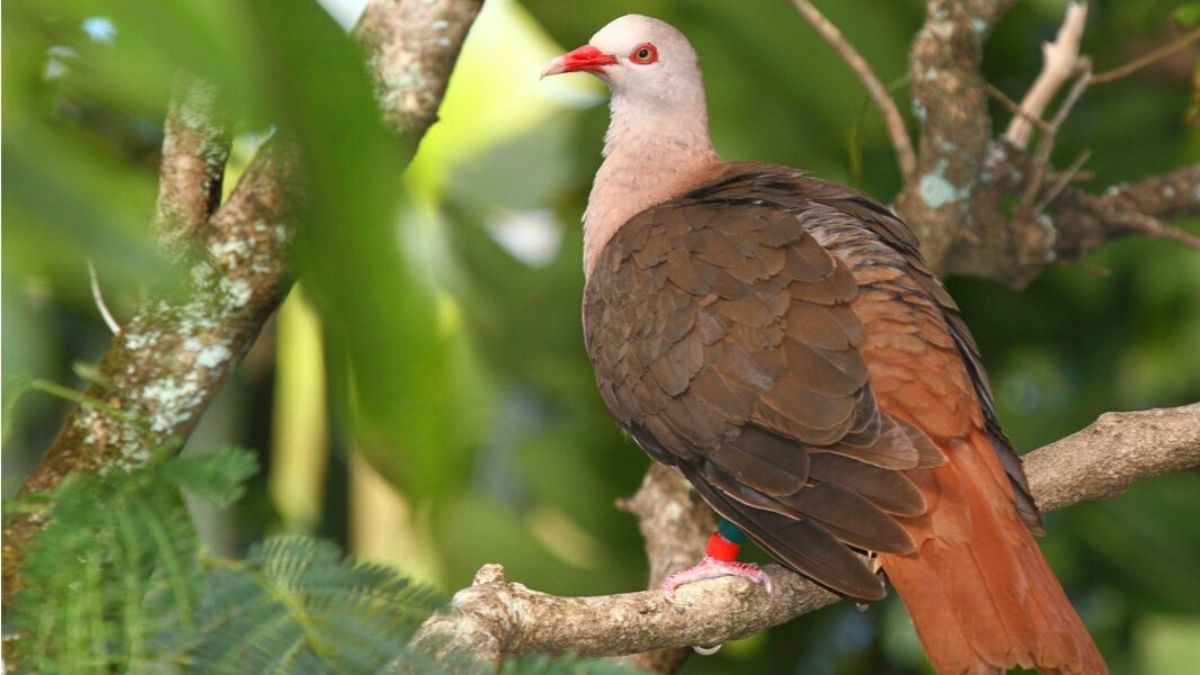News
Mauritius’ Pink pigeons need a ‘genetic rescue’ to survive extinction

A study has just revealed that a boost in the number of Mauritius’ pink pigeons in recent decades will not be enough to save the species from a high risk of extinction.
An international team of researchers led by the University of East Anglia worked with organizations in Mauritius to investigate the impacts of what ultimately became a genetic “bottleneck” across the island nation’s endemic population of pink pigeons.
Across Mauritius, there was a rapid collapse in the number of pink pigeons in the late 1980s due to attacks by feral cats.
This decline worsened until there were only 12 birds surviving in the wild.
Since then, conservation efforts by the Mauritian Wildlife Foundation, the Durrell Wildlife Conservation Trust, and the Government of Mauritius’ National Parks and Conservation Service paid off. The number of wild pink pigeons reached around 500 birds.
As conservation efforts took place, the experts analyzed genetic samples that were collected from 175 pink pigeons over nearly two decades.
Based on the analysis of the DNA, the experts found some disappointing news.
The experts analyzed genetic samples that were collected from 175 pink pigeons over nearly two decades, as conservation efforts took place. Based on the analysis of the DNA, the experts found some disappointing news.
The researchers discovered that, despite an increase in population, the pink pigeon now has a high genetic load of bad mutations. They explained that these mutations put the birds at considerable risk of extinction in the wild within 50-100 years without continued conservation actions.
“The problem is that all individuals are somehow related to each other. They are the descendants of the few ancestors that managed to survive the bottleneck. Hence, it becomes virtually impossible to stop inbreeding, and this exposes these bad mutations. In turn, this can increase the mortality rate, and it could cause the population to collapse again.”
The researchers warn that “genetic rescue” is needed to recover lost genetic variation caused by inbreeding and to reduce the effects of the harmful mutations. This could be achieved by releasing captive-bred birds from UK and EU zoos, they said.
According to study co-author Sam Speak, the team is now analyzing the genome of the pink pigeon from zoo populations in the UK, trying to locate these bad mutations. “We can do this now using bioinformatics tools developed for studying human genetics and the genomes of other model bird species such as the chicken.”
“By using conservation genomics, future reintroduction programmes can avoid releasing individuals with high genetic load,” said Speak. “This would help reduce inbreeding and improve the long-term recovery of threatened species such as the pink pigeon.”
Original article by Christie Sexton at earth.com
The study is published in the journal Conservation Biology.











